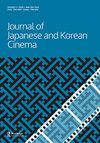漫漫归途:杨永喜的《平壤三部曲》中关于家庭和熟悉的修辞
引用次数: 3
摘要
杨永喜从一名自由视频记者迅速成长为日本少数族裔导演,没有什么比这更能代表日本电影制作日益跨国性和分散化的状况了。在短短七年多的时间里,她凭借两部纪录片和一部由日本和韩国资助的叙事小说,在柏林、圣丹斯和山形等电影节上获奖。但是,世界各地对杨的作品的接受掩盖了一个事实,即她迄今为止的所有作品都专注于将她的家人分开的顽固的国界:她的兄弟在平壤,她的父母在大阪。本研究分析了杨的“平壤三部曲”,包括《亲爱的平壤》(2005)、《索纳,另一个我》(2009)和《我们的家园》(2012),特别强调了她对家庭框架的创造性使用,也就是说,快照、家庭录像和家庭情节剧。一方面,我研究了“家庭”作为侨民话语的国家范式之外的关键第三空间的方式,另一方面,独立电影的后主权范式。本文章由计算机程序翻译,如有差异,请以英文原文为准。
A long way home: the rhetoric of family and familiarity in Yang Yong-hi’s Pyongyang Trilogy
ABSTRACT Nothing is more emblematic of the increasingly transnational and decentralized conditions for filmmaking in Japan today than Yang Yong-hi’s meteoric rise from a freelance video journalist to a leading minority director in Japan. In just over seven years, Yang has collected awards in film festivals including Berlin, Sundance, and Yamagata with two documentary features and one narrative fiction that she completed with Japanese and South Korean funding. But the cosmopolitan reception of Yang’s works belies the fact that all her works to date have singularly focused on the obstinacy of the national border that has divided her family: her brothers in Pyongyang and her parents in Osaka. This study offers an analysis of Yang’s ‘Pyongyang Trilogy’ comprising Dear Pyongyang (2005), Sona, the Other Myself (2009) and Our Homeland (2012), with a particular emphasis on her creative uses of familial framing, that is to say, snapshots, home videos, and family melodrama. I examine the ways in which ‘family’ functions as a critical third space outside the national paradigm of the diaspora discourse, on the one hand, and the post-sovereign paradigm of independent cinema, on the other hand.
求助全文
通过发布文献求助,成功后即可免费获取论文全文。
去求助
来源期刊

Journal of Japanese and Korean Cinema
Arts and Humanities-Visual Arts and Performing Arts
CiteScore
0.60
自引率
0.00%
发文量
16
期刊介绍:
Journal of Japanese and Korean Cinema is a fully refereed forum for the dissemination of scholarly work devoted to the cinemas of Japan and Korea and the interactions and relations between them. The increasingly transnational status of Japanese and Korean cinema underlines the need to deepen our understanding of this ever more globalized film-making region. Journal of Japanese and Korean Cinema is a peer-reviewed journal. The peer review process is double blind. Detailed Instructions for Authors can be found here.
 求助内容:
求助内容: 应助结果提醒方式:
应助结果提醒方式:


